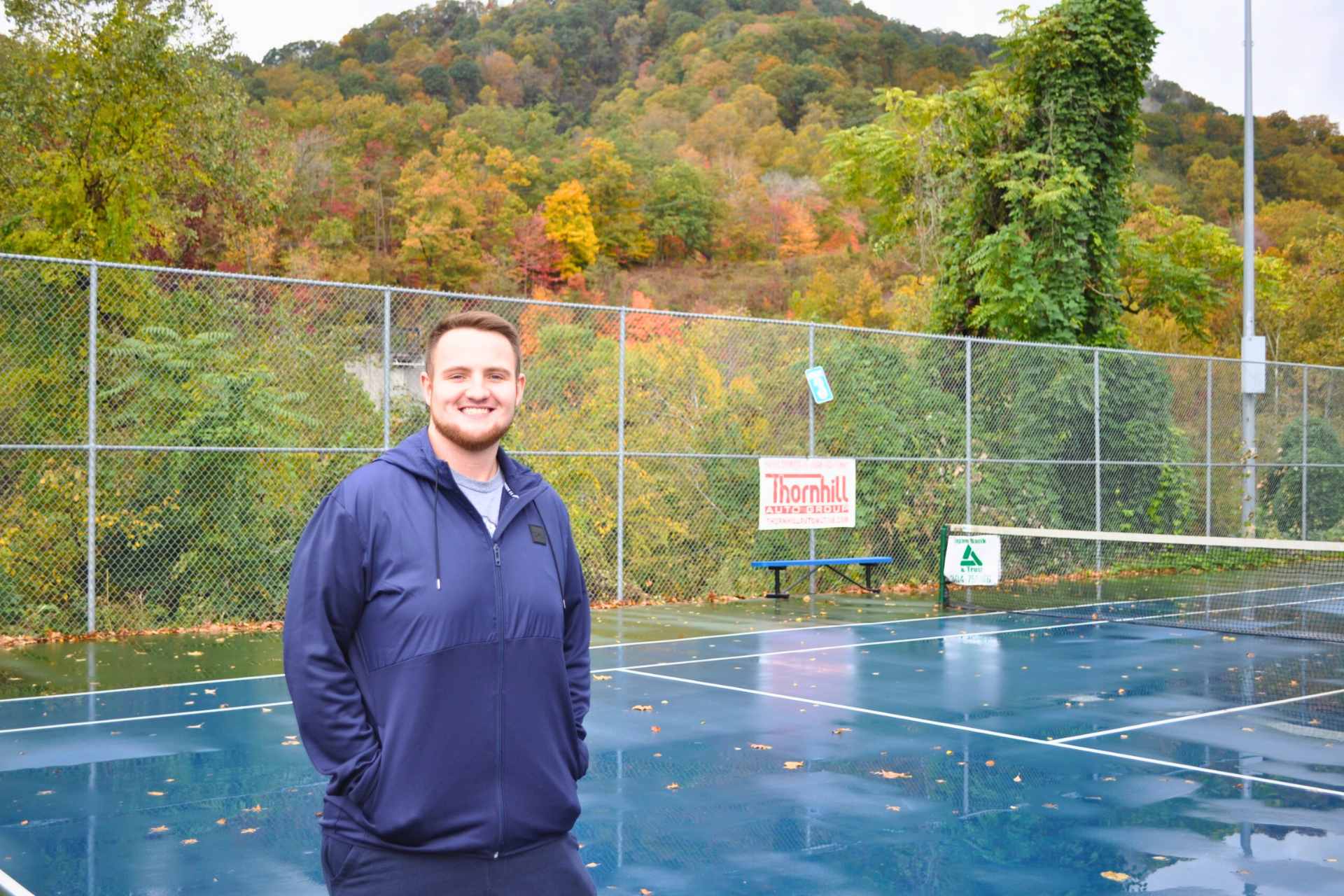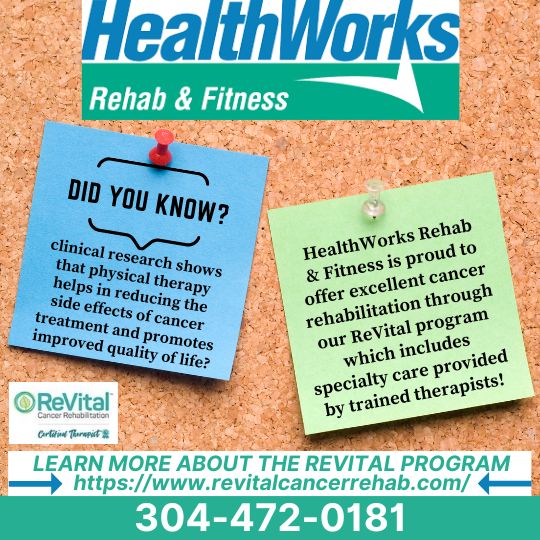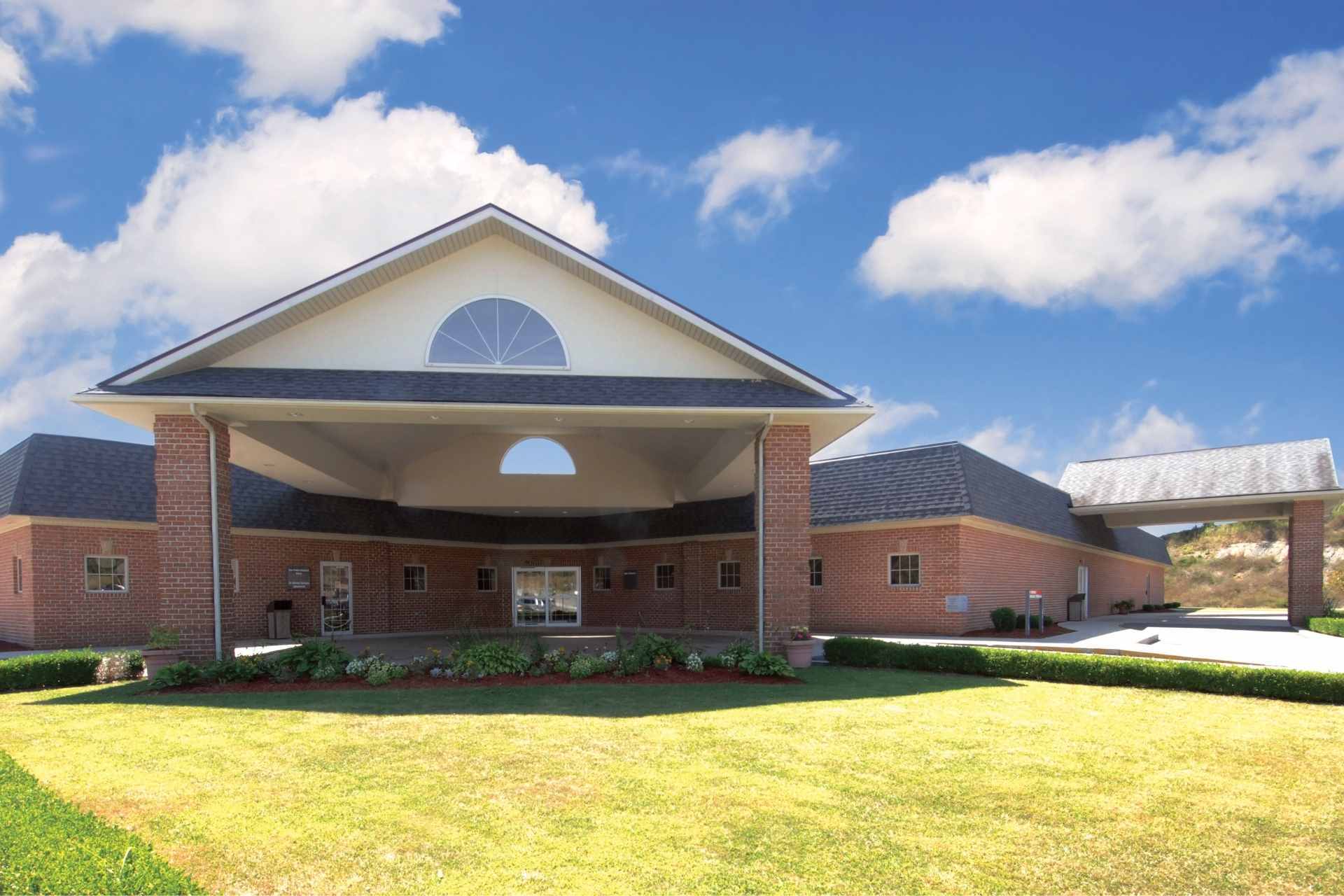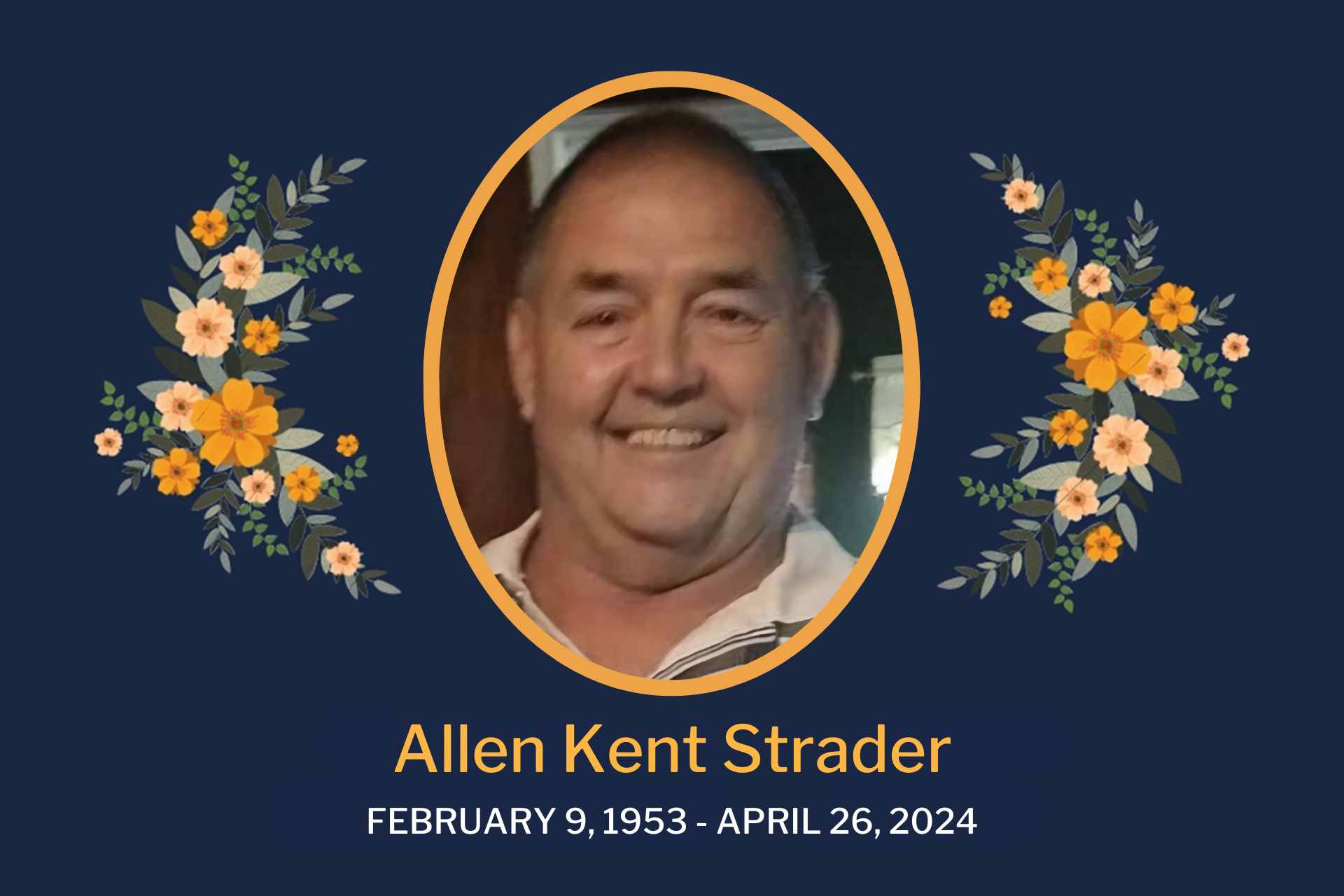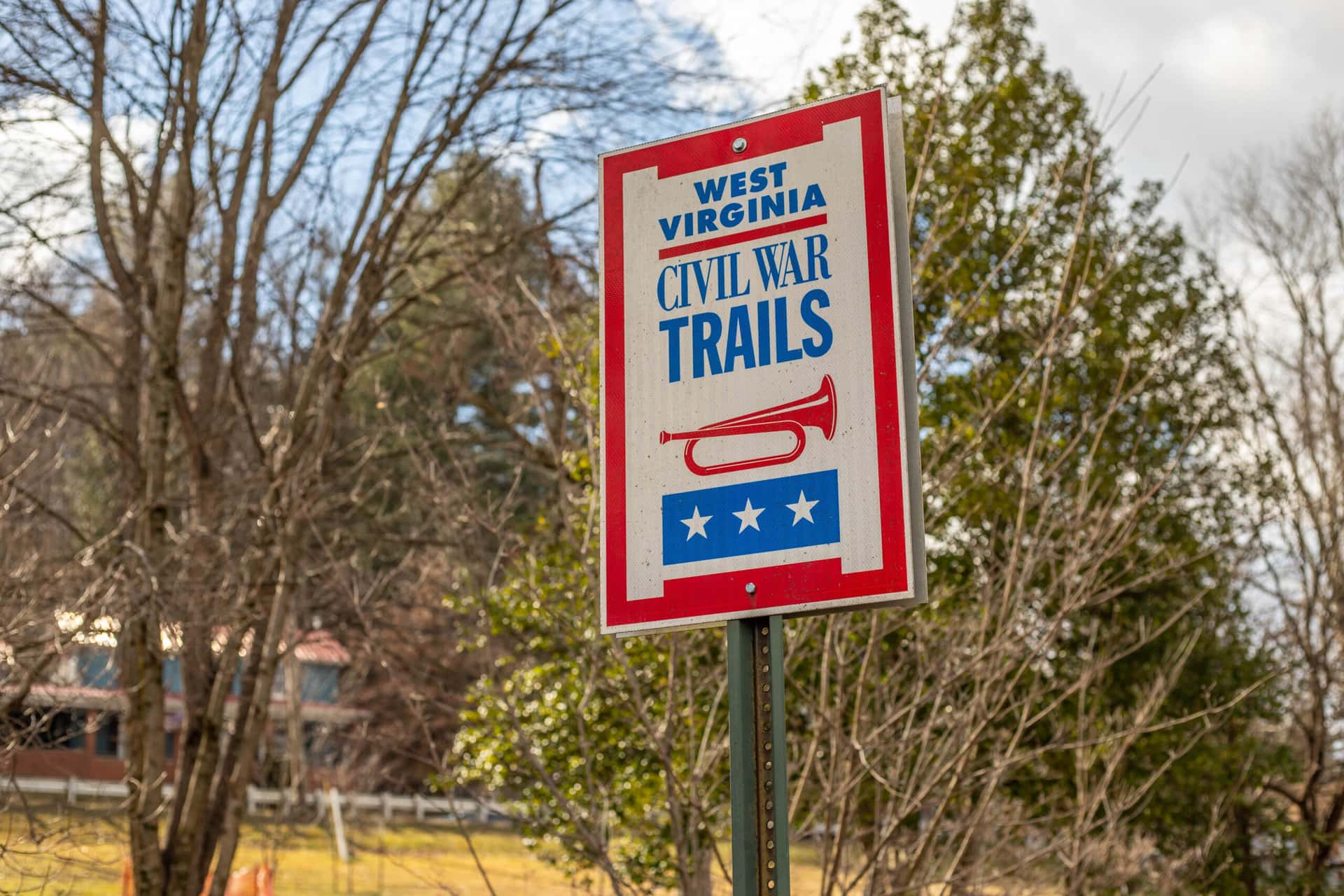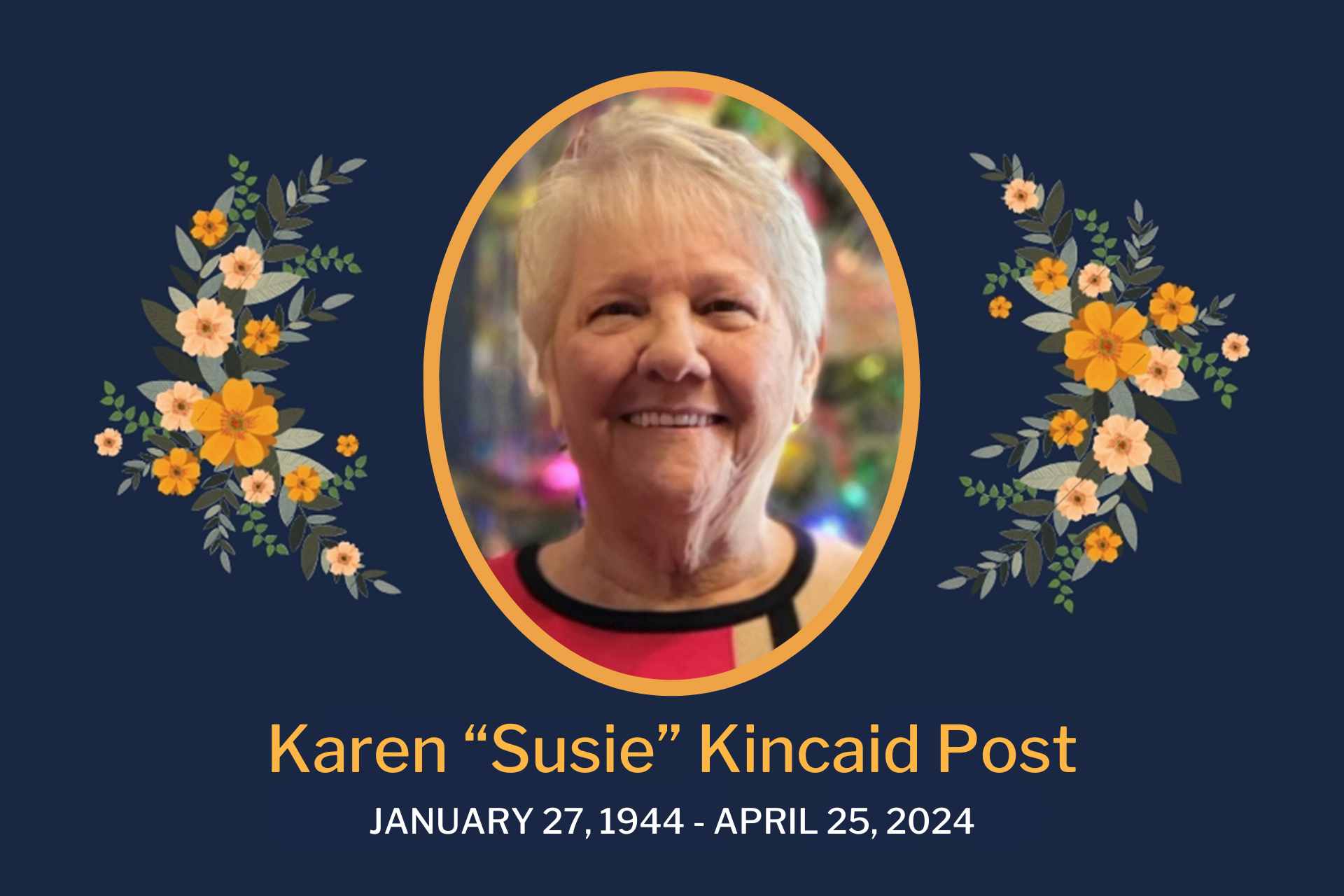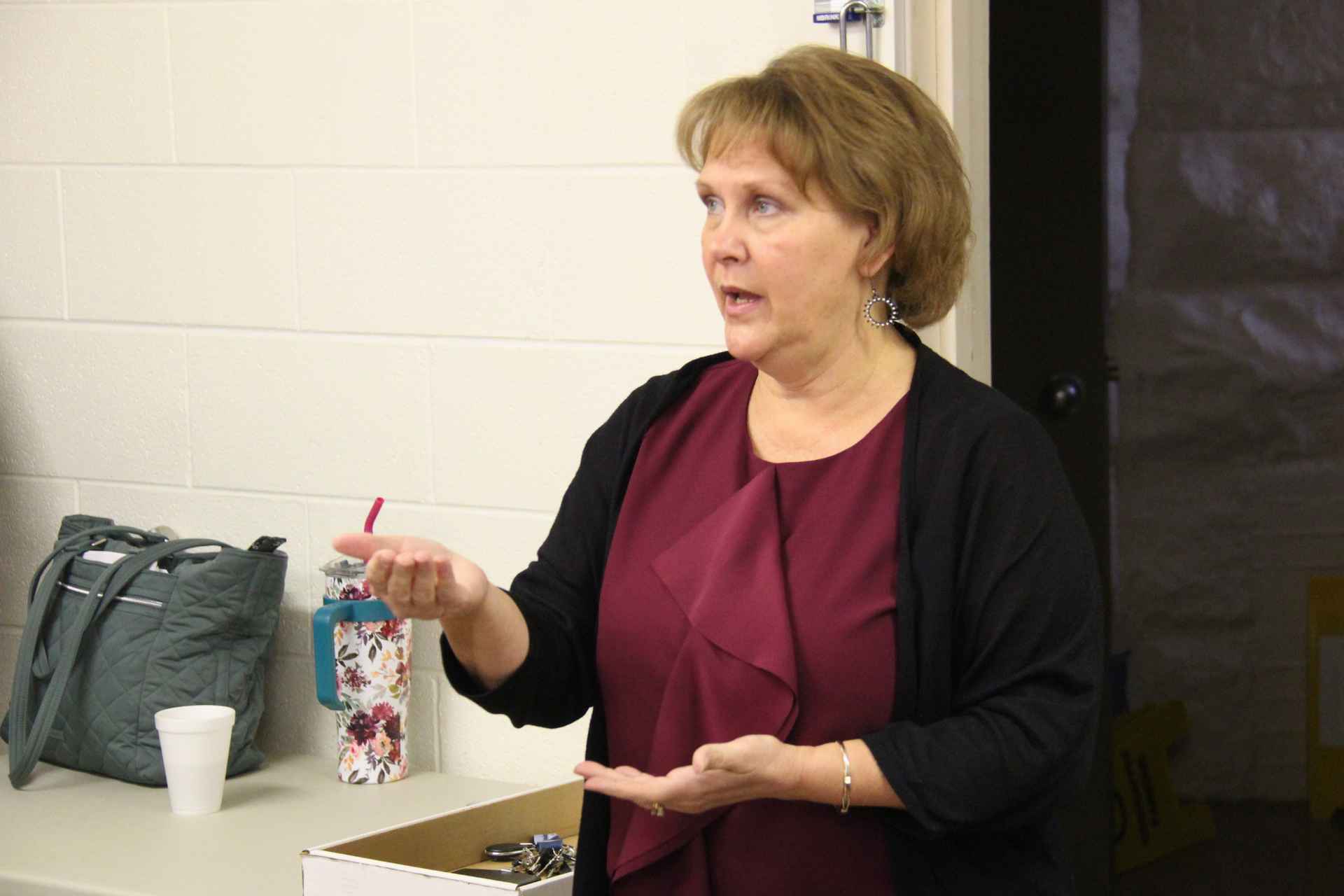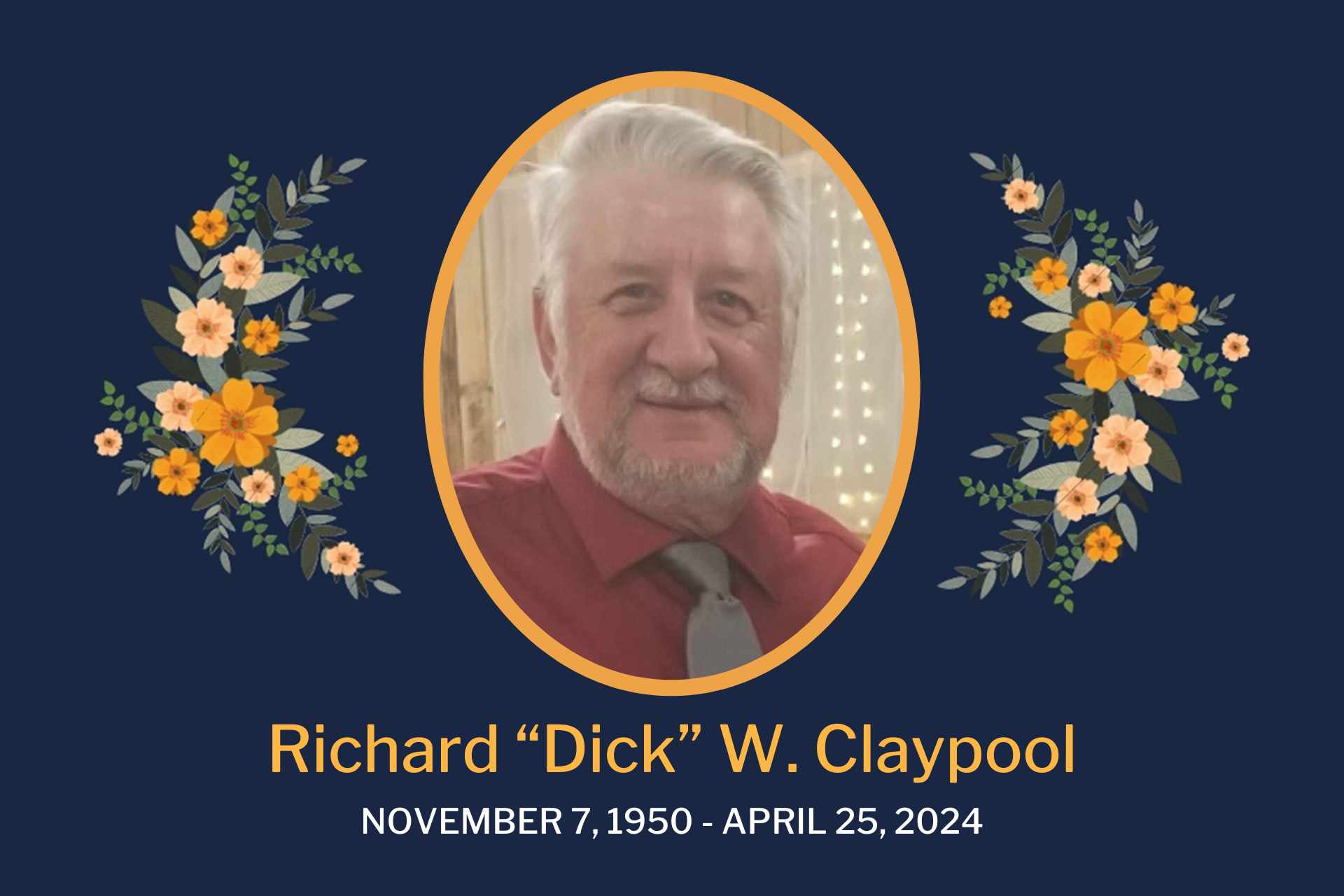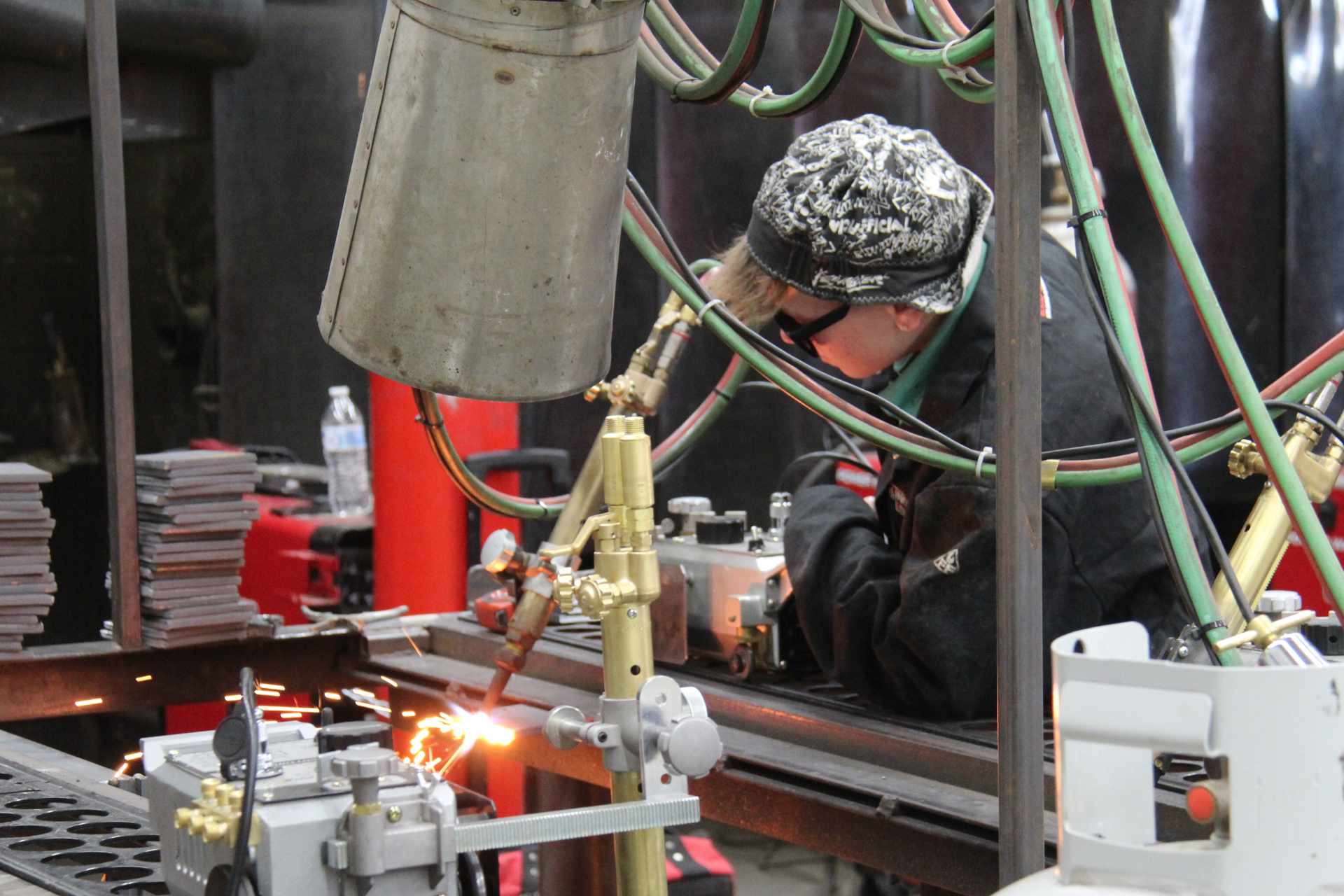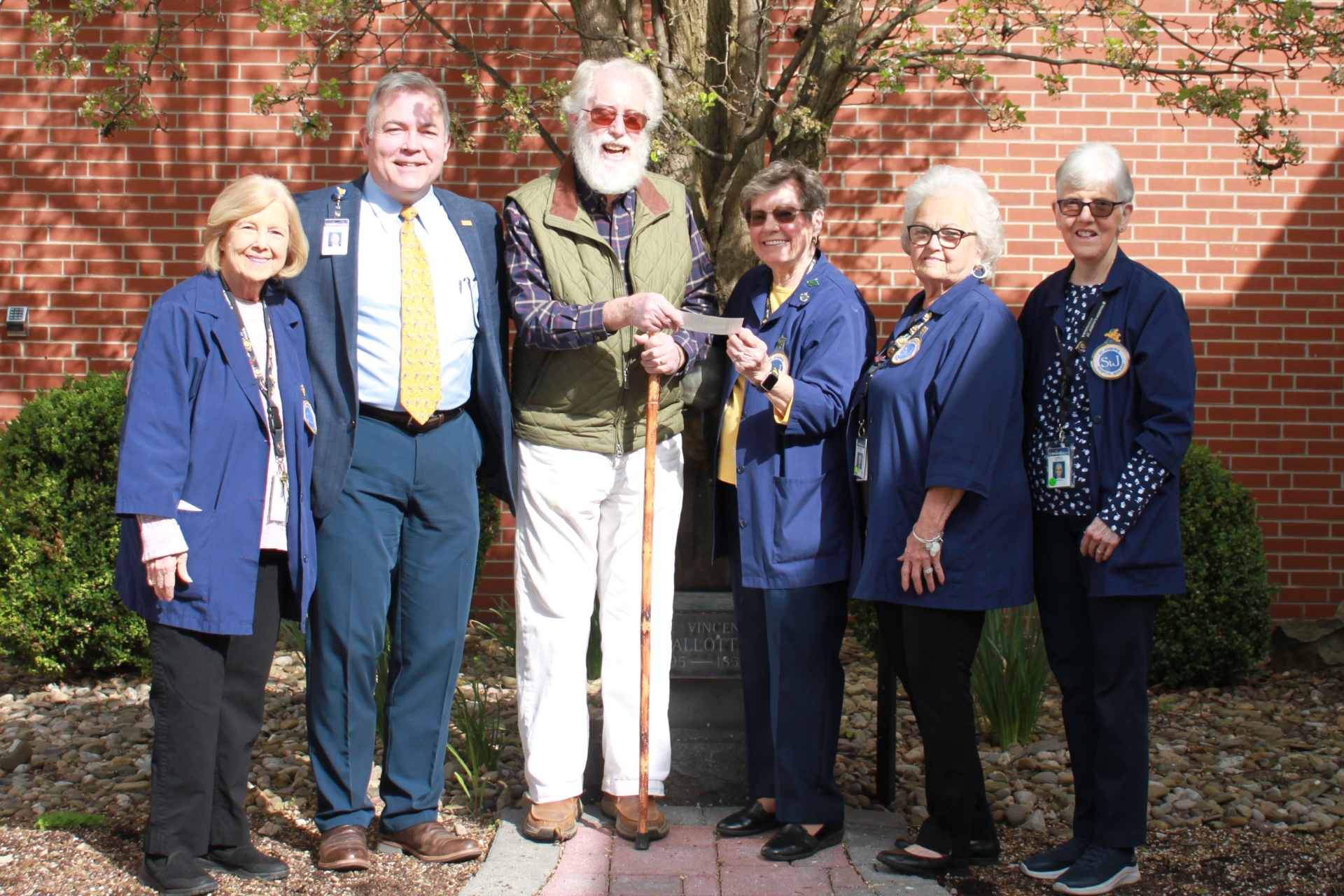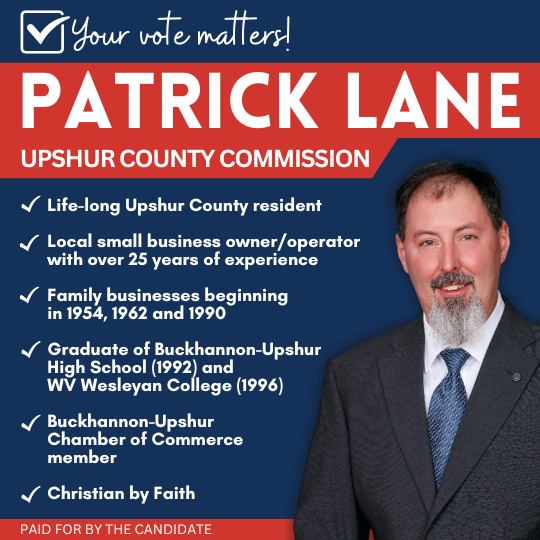Editor’s note: This story was originally published by Mountain State Spotlight. Get stories like this delivered to your email inbox once a week; sign up for the free newsletter at mountainstatespotlight.org/newsletter.
By Allen Siegler, Mountain State Spotlight
LOGAN — A drive through Logan County gives the perception of infinite exercise and recreation opportunities. From afar, the surrounding mountains, blanketed in crimson and gold leaves, look like they could be filled with hiking trails, stretching to the tops of the tallest peaks.
But that hasn’t been the reality for 24-year-old DJ Conley, who still lives in his hometown of Chapmanville. For his whole life, there have been few places in Logan County where people can be active and healthy.
The closest option, the recreation center at Chief Logan State Park, was nearly 10 miles away from his childhood home.
“The schools have playgrounds,” Conley said. “But as far as anything else other than school playgrounds, the park is the closest thing.”
He said this lack of access to exercise opportunities is one factor contributing to residents’ poor health. Over a third of the county’s adults say they’re not physically active, and nearly half are obese — some of the highest rates in West Virginia.
Conley, the community health improvement coordinator at Coalfield Health Center in Chapmanville, is part of a group that hopes to address this and other problems, like access to nutritious foods.
Since forming as a coalition a few years ago, Wild, Wonderful and Healthy Logan County has implemented strategies — like teaching kids about sugar consumption, developing a park and building a community greenhouse — to make it easier for people to make healthy decisions.
Kristin Dial, Coalfield Health’s chief executive officer and a leader of the Logan effort, said she hopes the efforts help make people believe they can live healthy lives in her county.
“Our goal is to really just change the narrative for the next generation,” she said.
While early accounts suggest the changes could be making a positive difference, the coalition doesn’t expect these problems to go away any time soon. Dial knows her group isn’t the first to identify unhealthy habits as a problem in Logan, nor is it the first to try to change them.
However, she and others are optimistic that over time, her group could make lasting health changes. If that happens, she thinks Logan County could serve as a template for communities around the state.
“I just think we would see such a long-term impact,” Dial said. “West Virginia climbing those ranks nationally and changing the state’s statistics.”
Learning from the past
Chronic diseases often linked with a lack of physical activity and poor diet have disproportionately plagued Logan County for decades. In 2012, the Charleston Gazette found that the area had the highest diabetes rate of any county in West Virginia, the state which already had the fourth-highest rate in the country.
At the time, groups around the state started working to try to address the issue. But other urgent health problems, like the growing overdose crisis, made addressing chronic diseases difficult.
“People who wanted to create a healthy community…they had to deal with the drug epidemic at the same time as they were trying to get people to live healthier lives,” said Kate Long, co-founder of the health nonprofit Try This West Virginia and a former long-time journalist. “And that’s playing with a lead tennis ball.”
Over the next decade, there were some bright spots in Logan’s health statistics: adults in the county reported being more physically active in 2022 than in 2012. But the diabetes rate stayed stagnant, and adult obesity increased.
Meanwhile, overdose deaths in the county more than doubled — contributing to a steep increase in deaths under 75.
Dial, like Conley, grew up in Champanville and saw these health problems firsthand in her community. She knows some are outside her control. But now, she and others are focused on taking a small but significant step: making healthy decisions into easy decisions.
“We’re just trying to really tackle what we can make a difference in,” Dial said.
How WWHLC is changing Logan
Coalfield Health Center’s building stands about two miles down the Guyandotte River from downtown Chapmanville. People have been going there for medical care for more than a decade. Soon, Conley expects locals to come for less-formal health care — to play at a park.

Next to the clinic, WWHLC is developing a public greenspace for all Logan County residents. Right now, the park has a quarter-mile gravel walking loop with intercrossing paths around gentle grass mounds. From the air, the trails trace out a human heart.
Conley said the coalition is still seeking some funds to finish landscaping the park. When it’s completed, the group hopes to pave the paths, install playground equipment and benches, and plant trees.
“Kids ideally could climb up the mounds and play on the mounds,” he said. “Run down, roll down, all the fun stuff.”
Another nine miles down the river, at the Hungry Lambs food distribution center in West Logan, there’s a new greenhouse filled with tomatoes and lettuce. WWHLC built it with grant funding to make sure that when residents come to the food pantry, they can get fresh fruits and vegetables.
“Kroger was donating some food, but the produce was at the end of its shelf life,” Conley said.
The coalition hires people from Fresh Start, a treatment program for people with substance use disorder, to tend to and grow the produce.
“Now that we have our greenhouse, we’re able to grow our own vegetables and distribute those,” he added.
The other large component of WWHLC has been working with the local public schools to install water-filling stations, teach kids about the negative health impacts of sugary beverages and offer free water bottles.
“We’ll be well on our way” A model of long-term health improvements
Dial and Conley know the full impacts of these efforts will only be seen over time. Still, there are signs that the group is on the right path — like modest increases to the percentage of Logan adults who are physically active.
And there are also residents who say the programs have had tangible, positive impacts on their lives. When Will Stanley entered Logan High School in 2018, he was at high risk of chronic diseases like diabetes.
“I weighed probably pushing 260 pounds,” he said.
As Stanley went through his first year, he started making healthier choices. He and his teammates on the tennis team, seeking to be more competitive, started changing their diets to include more fruits and vegetables. He graduated weighing 60 pounds less than he did at the start of high school.
While Stanley, now a sophomore at Marshall University studying occupational safety and health, credits his teammates for helping him lose the weight, he said lessons about the effects of sugary beverages helped him maintain healthy behaviors.
“We had certified health teachers, and they pushed it,” Stanley said.
Dial and Conley aren’t expecting the health trends in Logan County to turn around overnight; after all, the problems have stayed the same or gotten worse over decades. They also don’t think WWHLC will solve all of them.
But both indicated that they’re willing to be patient. In the meantime, they say they’ll continue identifying and addressing health problems in their communities. Other groups, including one of their biggest funders, are also supporting this type of work in counties across the state.
For communities that haven’t started the process, Conley encouraged them to look at Logan as a model for long-term changes.
“I don’t think that in my lifetime, I’ll see it where I want it to be,” he said. “[But] I think that we’ll be well on our way.”
Reach reporter Allen Siegler at allen@mountainstatespotlight.org.
